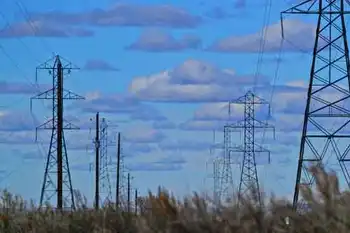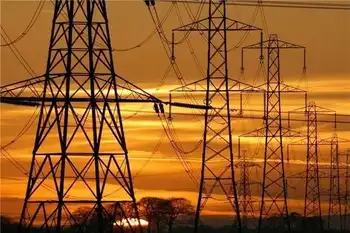Battery-free, multi-detection wireless sensors developed
By Business Wire
CSA Z462 Arc Flash Training - Electrical Safety Essentials
Our customized live online or in‑person group training can be delivered to your staff at your location.

- Live Online
- 6 hours Instructor-led
- Group Training Available
GE's unique RFID sensors are built on traditional RFID tags.
This “first-of-its-kind” sensing platform, in which a single sensor can provide a highly selective response to multiple chemicals under variable conditions, operates without a battery. GE’s sensor technology overcomes limitations in today’s sensors such as inadequate response selectivity and the need for an on-board power source. Without a battery, new sensors can be designed to be smaller than a penny and manufactured at very low cost. This could enable many exciting product applications, including:
• New security sensors that more effectively can detect dangerous chemical and biological threats;
• In-the-field water purification monitoring, checking for water impurities;
• Food and beverage safety monitoring, measuring the freshness of goods in transport or that are stored in the refrigerator at home;
• Portable vaccine manufacturing, ensuring the purity of a vaccine manufactured on-site during an emergency response to a flu outbreak or other potential pandemic;
• Emissions monitoring at power plants.
Radislav Potyrailo, a principal scientist at GE Global Research who leads this multidisciplinary wireless sensing development team, said, “We believe GE’s battery-free wireless sensing platform will be a game-changer across many product platforms in healthcare, security, water and pollution prevention, to name a few. Without the need for batteries, we can make sensors that are much smaller in size and at substantially reduced costs. These attributes, combined with the sensors’ highly selective chemical and bio sensing capabilities, provide new breakthrough sensing opportunities that will open the door to many new, innovative applications.”
Potyrailo added, "Because these sensors can be made at such low cost, they also can be made for one-time use. Similar to how your groceries get scanned for a price, imagine pointing a handheld sensor reader at a milk carton or packaged food to see whether it has been spoiled. This is just one of the new applications you can begin to consider with disposable, low cost multi-detection RFID sensors."
These new RFID sensors use a conventional RFID tag, but are coated with a chemically or biologically sensitive film. The sensor reader can obtain several varied responses, which allows the sensor to identify and measure individual chemicals in different mixtures and variable conditions. GEÂ’s sensors can detect trace concentrations of toxic gases such as toxic industrial chemicals (TICs), volatile organic compounds (VOCs), and chemicals in liquids.
To operate without batteries, the power is obtained wirelessly from the sensor reader. The reader activates the sensor antenna and the RFID chip and collects several response data parameters. The measurement of these parameters provides the ability to selectively detect different chemicals with an individual sensor.
The development of GEÂ’s novel wireless sensing platform illustrates the power of GE technology to leverage multiple areas of technical expertise from across many disciplines represented at GEÂ’s Global Research Center. A multidisciplinary team comprised of analytical chemists, RF engineers, polymer scientists, and microfabrication engineers contributed to the development of this new platform.











